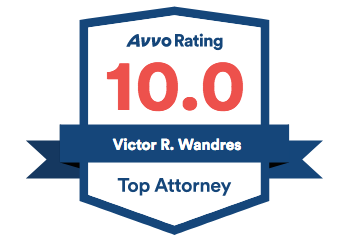What is the FDCPA?
The Fair Debt Collection Practices Act (FDCPA) is a federal law which essentially states that debt collectors must treat you with truth, fairness, dignity and respect. Though the law prohibits certain Debt Harassment Calls, Debt Harassment Laws in both Oklahoma and Louisiana also provide consumers with a few additional rights. Therefore, it important that you understand the FDCPA Guidelines for Collectors in order to make sure you are a) not paying a scam artists for a debt you don’t owe; and b) not paying more than you are legally required to pay. To help, we’ve published some free debt validation letters and other letters you can use with debt collectors in the link below.
What is debt harassment?
Probably more than what you think it is. It is considered debt harassment when a debt collector:
- Uses abusive language
- Reports inaccurate information to your credit report
- Calls and does not identify the company
- Calls you multiple times in one day
- Threatens to garnish your wages without a judgment
- Calls you on a cell phone you did not provide to the original creditor
- Lies about how the debt will affect your credit
- Tells your workplace, friends, family and/or neighbors about your debt
For our gallery of Free Debt Validation Letters, FDCPA Cease and Desist Letters, and other FDCPA Letters
click here.
Many debt collectors use the phone as their primary means to collect debt. This is why so often creditor harassment cases involve illegal and abusive phone calls. Some victims are afraid to answer their phone because they know a creditor will be on the other end demanding money. If there is an answering machine, these bold collections agents will leave nasty (yet incriminating) messages, using abusive language, profanity, and threats of criminal action including violence. These creditors will not listen to reason and they will not leave their victims alone. Victims suffer through days where the phone continues to ring every few minutes, all day long.
Under the FDCPA, debt collectors cannot abuse, harass or threaten you. Under this law, not only are debt collection agents not allowed to use any debt harassment tactics to try to collect debt, but they are severely restricted from participating in other misleading, deceptive or fraudulent activities. In order to be protected under the FDCPA however, the debt must be a consumer debt only – not a business debt.
Unfair collection of debt by the debt collector includes:
- trying to collect more money than the original contract
- extra charges incurred to the consumer (i.e. collect calls, delivery fees)
- calling the consumer a “dead beat” or other derogatory name
- unlawfully repossesses personal property or threatens to do so
- accepts or deposits a post-dated check
Retaining a consumer protection attorney, like Paramount Law, will stop debt harassment. Once we are retained, all debt collectors & collection agencies must communicate with only us as your attorney. If a debt collector commits FDCPA violations, that debt collector can be sued for statutory damages, actual damages and attorney fees. Consumers pay nothing to us out of pocket — we make the debt collector pay for our fees!
The Fair Debt Collection Practices Act protects consumers against harassing debt collectors. No one should have to put up with abusive telephone calls morning, noon and night. If this happens to you or anyone you know, the FDCPA allows you to sue the debt collector for harassment; it is illegal for a debt collector to harass anyone. Consult the attorneys at the Consumer Protection Attorneys of Paramount Law to discuss your legal rights.
The FDCPA provides a free attorney for debt harassment!



